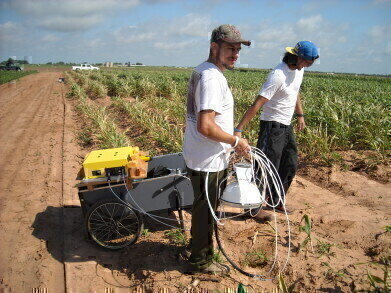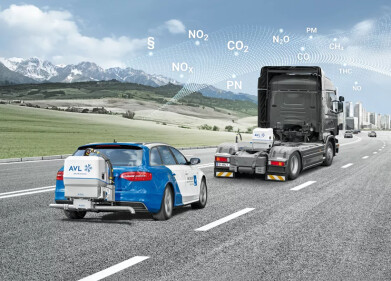Air Monitoring
Monitoring Greenhouse Gases from Biofuel Crops
Feb 04 2015
Global issues such as climate change and energy security have driven rapid growth in renewable energy production - wind, solar, tidal, geothermal, hydro, biofuels etc. However, logically, each of these methods should deliver a net benefit in terms of greenhouse gas (GHG) reduction, so researchers in the United States have employed portable Gasmet FTIR analysers to study the GHG emissions of biomass production processes. “It would be futile to manufacture biofuels in an attempt to mitigate climate change if the production process created more GHGs than were saved by using biofuels instead of fossil fuels,” says Dr. Joe Storlien from the Texas A&M University Department of Soil & Crop Sciences. The research team also included: Drs. Frank Hons, Jason Wight and James Heilman.
During the production of bioenergy crops, GHGs such as carbon dioxide, nitrous oxide and methane are lost from the soil through both natural and managed biogeochemical processes, and the researchers were able to measure these gases by installing collars within field study plots. Chambers of known volume were then fixed to the collars, and tubing connected the chambers to a Gasmet DX4030 multiparameter FTIR analyser which measured increases in gas concentrations inside the chambers’ headspaces over time (GHG diffusing out of the soil).
Agronomic management practices (fertilisation, crop rotation, organic residue management, etc.) can affect the amount and type of GHG emissions that are lost from the soil. The researchers therefore studied the management production scenarios that are employed to produce bioenergy crops in order to determine which scenarios provide the greatest sustainable long-term yields and simultaneously minimise GHG emissions. The study analysed both direct GHG emissions (arising from the field trial itself) and indirect GHG emissions (arising from the production and delivery of trial inputs - such as tillage, planting, fertilisation, irrigation etc.), soil carbon sequestration to a 3-foot depth, and theoretical biofuel yield from eight different sorghum production scenarios.
Summarising the conclusions that have been drawn so far Dr. Storlien said: “Unfertilised, monoculture sorghum with half the yield returned to the field to provide nutrients and organic matter had the greatest overall biofuel production efficiency based on net greenhouse gas emissions savings. However, crop rotation and fertilization would be recommended to minimise pest pressure and sustain long-term crop yield.”
The flexibility of the Gasmet DX4030 has been a major advantage to Dr. Storlien and his colleagues, and as a result, the instrument has also been employed on two other bioenergy-related projects, both of which utilised the FTIR to measure GHGs from soils in greenhouse experiments.
The ability to monitor a range of compounds simultaneously is a major advantage, and one that appeals to a broad section of the research community. Access to live readings provides an opportunity to check that the monitoring is proceeding correctly and in the case of the DX4030 data can be viewed and logged on a PDA that connects wirelessly with the instrument via Bluetooth, and/or the instrument can be connected to a laptop computer. In Texas, only one person was necessary for gas monitoring where two people had previously been necessary.
In-field/instant results can mean that there are no concerns about collecting samples and transportation to a laboratory for further analysis. The Texas researchers, for example, obtained a new measurement every 20 seconds; halving the deployment time and saving substantial costs.
Summarising, Dr. Storlien says: “Due to the versatility of the Gasmet FTIR, we believe there will be numerous projects in the future that will benefit from this technology. I really think that mobile-FTIR could become very popular with researchers, because it does a great job measuring GHGs and helps us understand how humans impact the drivers of global climate change, which is extremely important and a booming area of research.”
Digital Edition
IET 34.2 March 2024
April 2024
Gas Detection - Biogas batch fermentation system for laboratory use with automatic gas analysis in real time Water/Wastewater - Upcycling sensors for sustainable nature management - Prist...
View all digital editions
Events
Apr 22 2024 Hannover, Germany
Apr 22 2024 Marrakech, Morroco
Apr 23 2024 Kuala Lumpur, Malaysia
Apr 23 2024 Kintex, South Korea
Apr 23 2024 Edmonton, AB, Canada


















